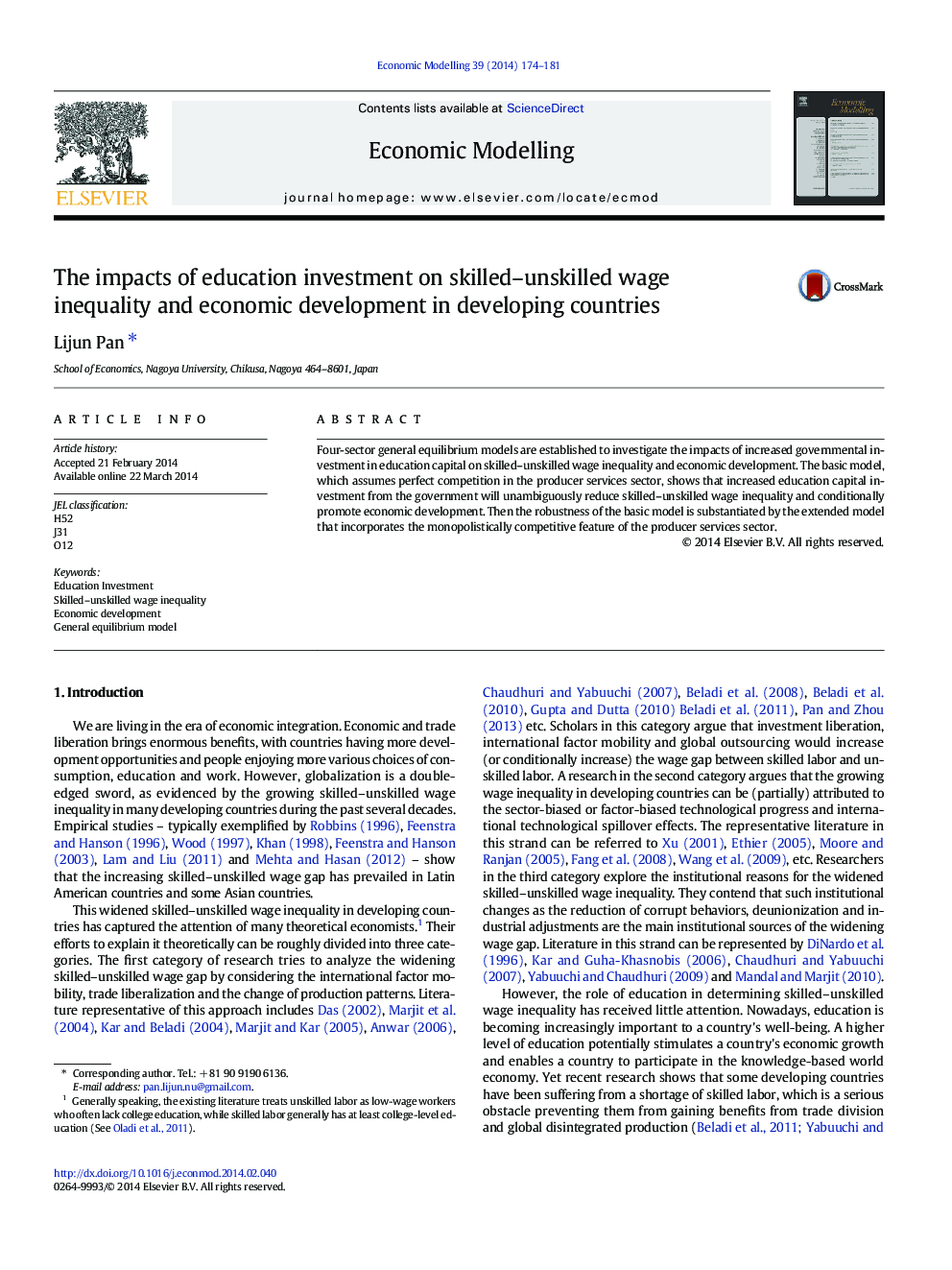| Article ID | Journal | Published Year | Pages | File Type |
|---|---|---|---|---|
| 5054245 | Economic Modelling | 2014 | 8 Pages |
Abstract
Four-sector general equilibrium models are established to investigate the impacts of increased governmental investment in education capital on skilled-unskilled wage inequality and economic development. The basic model, which assumes perfect competition in the producer services sector, shows that increased education capital investment from the government will unambiguously reduce skilled-unskilled wage inequality and conditionally promote economic development. Then the robustness of the basic model is substantiated by the extended model that incorporates the monopolistically competitive feature of the producer services sector.
Related Topics
Social Sciences and Humanities
Economics, Econometrics and Finance
Economics and Econometrics
Authors
Lijun Pan,
